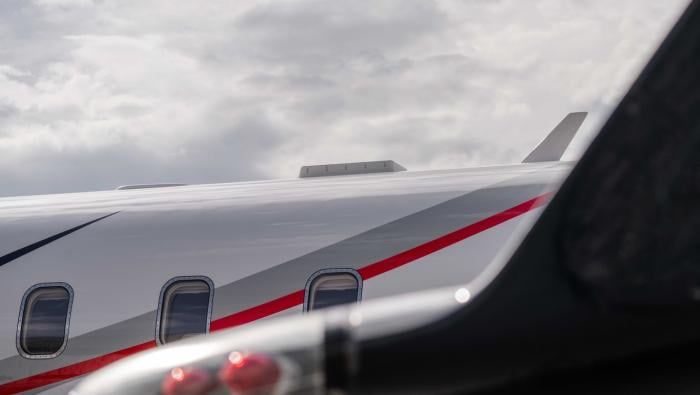In a verdict that is certain to give maintenance facilities incentive to review their policies and procedures, a Philadelphia jury has awarded Dr. Robert Marisco Jr. and his fiancée, Heather Moran, both of Akron, Ohio, $11.35 million in compensatory damages in a lawsuit that claimed that Winner Aviation's negligence contributed to a 2007 accident. The jury found Winner Aviation to be negligent and to have breached warranties in its inspection, maintenance and repair of a Cessna Skymaster and that the misconduct was a direct cause of an emergency, off-airport landing. The jury also found the plaintiff was 20 percent negligent in the accident.
On Aug. 8, 2007, the couple was flying back to Ohio in Marisco’s Cessna Skymaster when the rear engine on the centerline-thrust twin lost power shortly after takeoff from DeKalb-Peachtree Airport in Georgia. Attempts to restart the engine failed. Moran, a professional pilot with regional airline experience, attempted an off-airport emergency landing that resulted in the aircraft catching fire. Both occupants suffered disabling and disfiguring injuries, including third-degree burns covering nearly 40 percent of their bodies.
Winner Aviation of Youngstown-Warren Regional Airport in Ohio had maintained the twin-engine aircraft since it was purchased in 2006. According to the plaintiff, from 2006 until the time of the crash, the Skymaster was plagued by recurrent problems with its rear engine. Winner Aviation performed repeated troubleshooting on the wastegate when, in fact, the problems went much deeper, according to the plaintiff.
During the trial the plaintiffs claimed, among other things, that Winner Aviation never undertook repairs or overhaul of the rear engine that were necessary to keep it in an airworthy condition. The plaintiffs further alleged that Winner Aviation’s misdiagnosis of the recurrent problems of power loss in the rear engine was compounded by a failure to have an appropriate inspector investigate all work that its mechanics were performing. The plaintiffs also alleged that Winner Aviation was aware that the front engine was long overdue for a complete overhaul but never recommended one. They further argued that the failure to overhaul the engine or, at the very least, perform a proper inspection and repair of its valve guides and other engine parts caused a diminution of power during an in-flight emergency precisely when full power was most important.
In an exclusive interview Rick Hale, president and CEO of Winner Aviation, told AIN he is disappointed in the jury’s verdict, especially in light of the fact that immediately post-accident the pilot had stated that the condition focused on by the plaintiffs during trial “had been fully resolved.”
“The aircraft departed that airport and had flown approximately ten miles north when an engine problem purportedly developed. Rather than head directly back to DeKalb-Peachtree, the pilot initially maneuvered the aircraft for some period of time, attempting to resolve the problem and then rejected the opportunity to land at a smaller, private airport and attempted to make it back to DeKalb-Peachtree. When the pilot was not able to maintain altitude, she attempted an off-airport landing [at a water treatment facility] but was not able to do so effectively and a crash landing resulted with an ensuing fire,” Hale said.
Winner’s defense was based on the fact that the ongoing condition with the aircraft had focused on the turbocharger wastegate and once a new wastegate was installed in the aircraft the problem had been resolved, and the pilot’s statement post-accident confirmed the resolution of that condition. Winner asserted that there was no ongoing deteriorating condition in the rear engine that was readily discoverable. There was nothing in the engine that would suggest a loss of the oil pressurization system to the propeller control. Measurements of the components in the oil transfer system to the propeller control showed that all those components were within factory-new dimensions. Hale also emphasized that post-trial statements by the pilot confirmed that she had not applied full power to the front engine or retracted the rear-engine cowl flaps. Hale said there were a number of issues during trial that remain in dispute, and that Winner intends to appeal the verdict.







